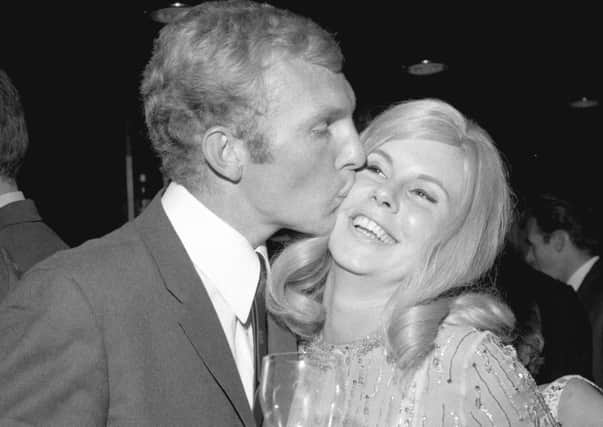Aidan Smith: Pele, Bobby Moore and Mexico '70 memories


The 1970 World Cup is imperishable, it will never disappear completely from the memories of those who were exactly the right age when it played out on sun-browned grass with David Coleman describing the seductive flight, through Mexico’s thin air, of the Telstar polka-dot ball. But the competition has changed out of all recognition, especially now the decision has been taken to turn it into a gargantuan affair comprising 48 teams.
Just 16 countries participated in 1970 and we can name them all, right? The finals produced a goals-per-game ratio that’s never been bettered, despite opening with a 0-0 draw. El Salvador went home with no goals and no points to their name but with a generation of schoolboys the world over confident about locating the country in the family atlas. And at the tournament’s conclusion those boys – too immature to appreciate its worth – didn’t even place the Moore tackle in the top ten most memorable moments.
Advertisement
Hide AdAdvertisement
Hide AdCarlos Alberto’s winning goal was No.1, of course, and there were high placings for Rivelino’s moustache, Rivelino’s furious goal celebration and his left-foot whizzers against Czechoslovakia and Uruguay, which at the time seemed like the hardest-hit shots there had ever been.
It was the sheer athleticism of the tournament which astonished, leaving us in a dream-like state. Who knew a ball could be struck with such velocity? Who knew a goalkeeper – Gordon Banks – could leap and claw the ball off the line and up and over the crossbar? That headers could be scored with such a high leap as Pele’s? That back headers even existed, never mind that they could be scored by a balding man, Uwe Seeler? That a short, stocky man – Gerd Muller – could hoist one of his Black Forest stumps 60 degrees to bang home a winner?
We had never seen a player – Pele – attempt to score from the halfway line before. Or sell a dummy to a goalie like the one which made a monkey out of the tournament’s best, Uruguay’s Ladislao Mazurkiewicz. But 1970 wasn’t all about Brazil. Peru’s Teofilo Cubillas announced himself as a player who could definitely haunt Scotland eight years down the line. Italy and West Germany hammered each other for 120 high-altitude minutes in the greatest-ever World Cup match, with Gianni Rivera still not showing a single hair out of place at the final whistle. Meanwhile, Moore made the greatest-ever tackle look easy.
The drama Tina and Bobby, as the title suggests, is being told as much from the woman’s perspective, in this case Moore’s first wife. Early on, after being informed the handsome blond fellow fancying her in the discotheque queue is a footballer, Tina scoffs: “That’s not a job!” This reminded me of another football reconstruction, the United film about the Busby Babes, where the Man U players pretended to be joiners and electricians to impress the girls. Footballer may still not be a job but these days it’s slightly better rewarded.
Wisely, Tina and Bobby doesn’t attempt to re-stage games. TV can do many things but it can’t do that. There’s nothing more ridiculous than actors with their pale, untoned legs poncing about a pitch in front of extras chanting “Ra-ra!”, not least when trying to mimic Billy Bremner, The Damned United containing the worst football impersonation ever committed to celluloid. In any case, the real drama in this series thus far is happening at home, with Moore concealing his testicular cancer until Tina forces him to see a doctor.
The precarious state of Moore’s tackle came long before The Tackle, indeed before 1966. That he had to have one testicle removed – “I don’t understand,” Tina says to the specialist, “he’s 23, he’s an athlete” – was kept from team-mates and the football world, including the Hampden hordes who’d bait him madly during Auld Enemy clashes. I don’t know if Tina and Bobby will take the story to its sad conclusion, but Moore would make his peace with Scotland towards the end of his life, helping Edinburgh’s Western General Hospital with research into the disease which he must have known would conclude too late for him, with his second wife Stephanie praising the cabbies, medical staff and fellow patients who never sold the story of those trips to the papers. In the drama Moore is played by the Skye-born actor Lorne MacFadyen and of course Back Home, England’s 1970 World Cup song, was co-written by a Scot, Bill Martin, in between bashing ’em out for Eurovision and the Bay City Rollers.
When Moore came back home from Mexico – an eventful expedition which began with him being accused of stealing a bracelet – it was without the trophy. But he played his part with a ball of space-age design in a tournament which shot the game into orbit. With the Telstar at their feet, the heroes of 1970 explored Mexico’s rarefied air like the astronauts and cosmonauts who’d been exploring the stratosphere.
They were the first to flaunt skills which these days we take for granted. Football can no longer astonish to quite the same degree because a lot of the pioneering work has been done, but the modern game gets round this by being fitter and faster and through sheer omnipresence, the latest example being the 48-team World Cup of 2026.
Advertisement
Hide AdAdvertisement
Hide AdWould a Pele pass like the one for Carlos Alberto still stand out in such an overcrowded scene? Would a pickpocketing interception by Moore? You’d like to think so. Meanwhile, the beautiful game continues in its new role as the bountiful game. It’s times like these when football seems to be eating itself, incapable of stopping all the gutsing and gormandising.